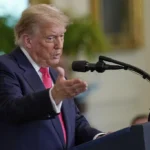
In a significant move within the international sports community, twelve Middle Eastern football associations have united in a call for the Israeli national team to be banned from FIFA over the ongoing conflict in Gaza. This collective stance, articulated in a letter addressed to FIFA, its 211 national member associations, and the six regional confederations including UEFA, underscores the escalating concern over the humanitarian situation in Gaza and its impact on the football community. But what led these associations to take such a drastic step, and what implications might this have for international football?
The letter, spearheaded by the West Asian Football Federations (WAFF) and made public on January 31, explicitly condemns the “atrocities committed in Palestine and the war crimes in Gaza,” highlighting the killing of innocent civilians, including players, coaches, referees, and officials, as well as the destruction of football infrastructure. The federations, led by Jordan FA president Prince Ali bin Al Hussein, who is notably the half-brother of Jordan’s King Abdullah II, are urging FIFA and its member associations to take a “united front in isolating the Israeli Football Association from all football-related activities” until the cessation of these aggressive acts.
This call to action is not just a reflection of the political tensions in the region but also a response to the humanitarian crisis unfolding in Gaza, where the death toll is reported to be approaching 28,000 according to the Health Ministry in Hamas-controlled Gaza. The federations’ appeal is bolstered by recent rulings from the International Court of Justice (ICJ), which ordered Israel to prevent genocide against Palestinians in Gaza, emphasizing the severity of the situation and the need for immediate action from the global football community.
Israel, on its part, maintains that its military actions are not targeting civilians and accuses Hamas of operating within civilian infrastructures, complicating the conflict dynamics. Meanwhile, Qatar’s role as a mediator in the conflict, including efforts to negotiate the release of hostages and work towards a ceasefire, adds a layer of diplomatic complexity to the situation, especially considering its involvement in the call for a ban.
As the story unfolds, the potential isolation of the Israeli Football Association from international football activities raises questions about the role of sports in political and humanitarian disputes. This unprecedented move by the Middle Eastern football associations highlights the growing intersection between sports, politics, and human rights, signaling a possible shift in how global sporting bodies might engage with geopolitical conflicts in the future.




































Leave a Reply